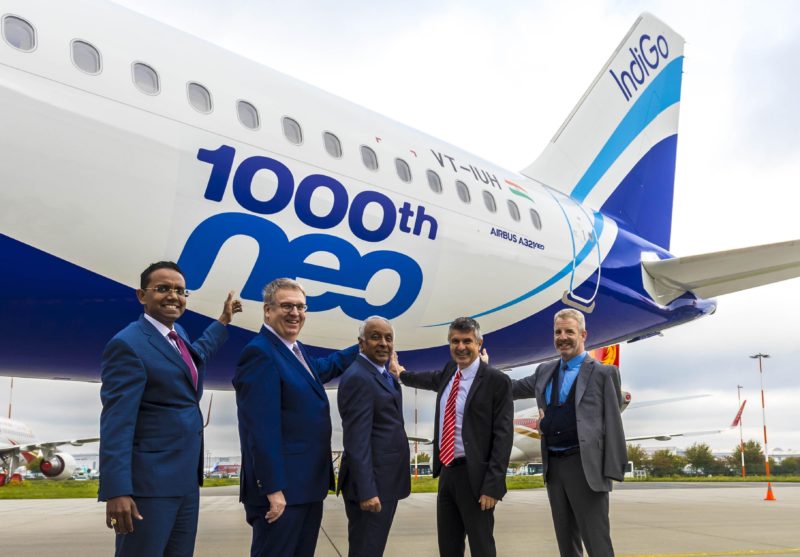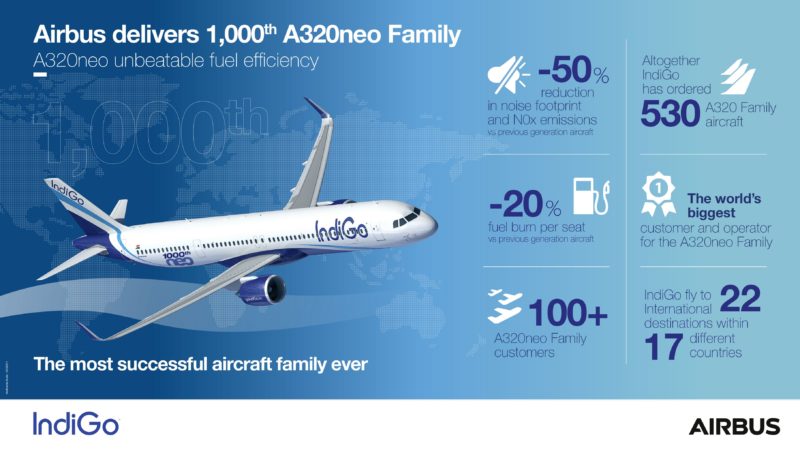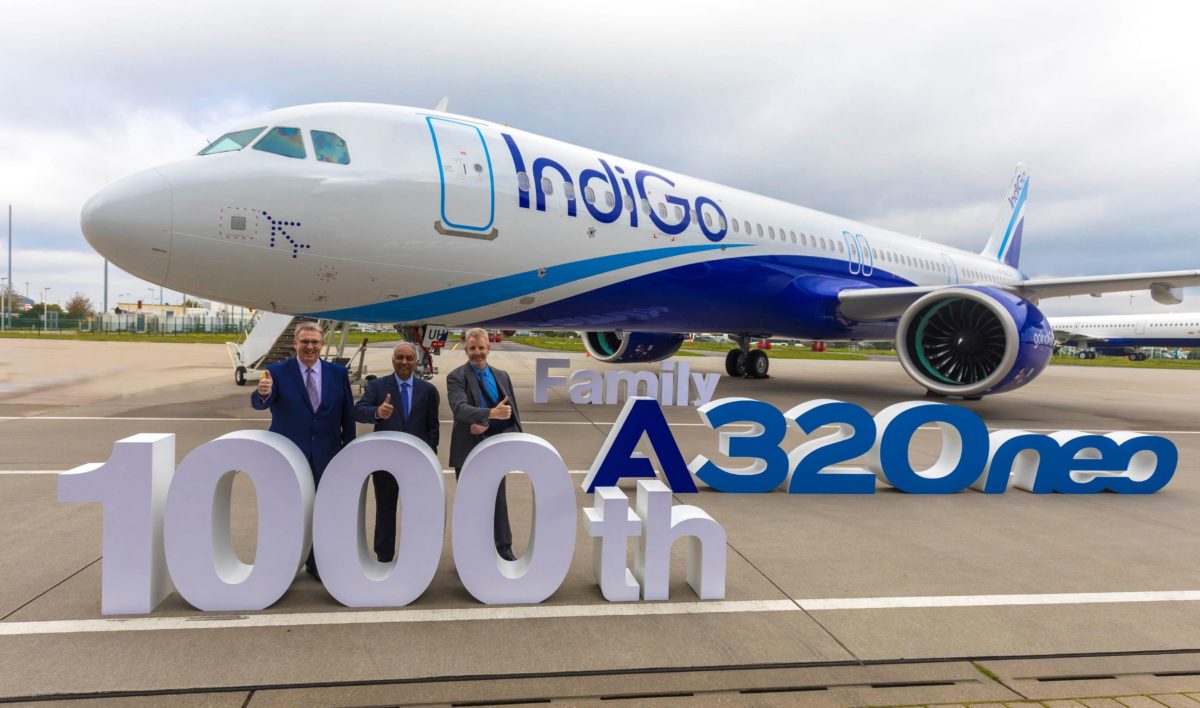During a special ceremony held in Hamburg, Germany, Airbus delivered the 1,000th A320neo Family aircraft.
IndiGo was the lucky airline to be apart of this milestone, taking delivery of another A321neo on the 10th of October with registration VT-IUH. The aircraft is on lease with the airline from CDB Aviation Lease Finance.
With a total of 430 A320neo Family aircraft on order, IndiGo is the largest customer for the type. Already, IndiGo operates 96 A320neo aircraft alongside their existing fleet of A320ceos.

Considering Airbus only handed over the first A320neo in 2016, when Lufthansa became the launch operator, this milestone is quite impressive. In comparison, it took Airbus over ten years to deliver 1000 of the classic A320 Family aircraft.
Since the program launched in 2010, Airbus has secured more than 6,660 firm orders for the A320neo Family from 110 customers positioned around the world.
Additionally Airbus has ticked off another milestone every year since launch, with the first A321neo in 2017, the first A321LR in 2018 and the launch of the A321XLR in 2019 during the Paris Airshow.
The figures alone and the constant technical upgrades available to the A320neo demonstrates the raw capability designed right from the beginning, all the way back in the 1980s.
Airbus has had a strong manufacturing scheme for the A320neo, with production sites located in Toulouse, Hamburg, Tianjin, and Alabama.

With the option of either two Pratt and Whitney Geared Turbofan engines or two CFM LEAP engines, the A320neo Family can offer airlines up to 20 percent reduced fuel burn compared to previous generation aircraft of the same category.
For the community on the ground, the A320neo produces half the sound footprint compared to older aircraft thanks to the highly-advanced engines and revised aerodynamics.
Benefiting passengers is the technology incorporated into the cabin. With the widest cabin in the same category aircraft, Airbus is able to provide customers with great customisation whilst retaining the expected comfort levels.
Part of this includes the overhead bins, which are 40 percent larger than previous models. Depending on cabin configuration and aircraft type, the A320neo can seat up to 240 passengers.
As the demand for the aircraft is already well established, Airbus is studying ways to increase production rates to above 70 per month, across all their factories.


